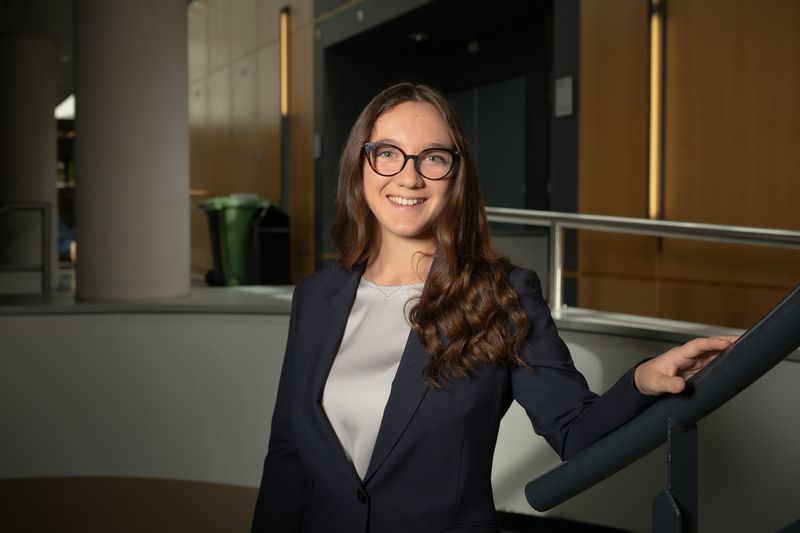From war to reconstruction: how does a torn country attract investors?
After a war or other crisis, every foreign investment is invaluable. How much of this investment a country attracts often depends remarkably on one factor: trust. This is what former International Management student Beatrice Spanio discovered.

What is your master’s thesis about?
‘I investigated the extent to which foreign investors’ trust in a country’s institutions determines that country’s ability to attract these investors.
‘Foreign companies or individuals can invest in businesses or projects in a country. Such investments can range from infrastructure projects to ventures within the local economy.
‘For countries that have just experienced a conflict – such as a war – such investments are often crucial: they need capital to rebuild both their infrastructure and their economy.’
Why did you choose this particular subject?
‘The idea arose partly from the war in Ukraine. When I started my research, the war was already underway – as it still is – but I already thought: once the conflict phase is over, Ukraine will need enormous investments to rebuild its economy and infrastructure.
‘That led me to the broader question: how can countries in post-conflict phases attract foreign investors, while they are often fragile and trust in their institutions is low? Trust seemed to me an underestimated factor. It’s difficult to measure and therefore rarely researched. Much research focuses primarily on more tangible factors, such as economic health, infrastructure, or political stability.’
How did you measure that trust?
‘That was a challenge. I used several indicators: the level of corruption, the effectiveness (trustworthiness) of the government, and the efficiency of the courts. I combined these into a single “trust index,” with a score from 0 to 100.
‘This index shows how well a country is able to build investor confidence. The advantage of such an index is that policymakers and investors have concrete reference points: they can see where improvements can be made, for example, by combating corruption or strengthening institutions.
‘A good example of a country that has experienced a war is Malaysia. In my trust index, Malaysia scores around 60. This figure can help the Malaysian government determine where improvements are most needed.’
Why do foreign companies or individuals invest in a post-conflict country at all?
‘There’s the business motive: post-conflict countries often offer high risks, but that also means an investment potentially offers high returns.
‘Investors can also have reputational or philanthropic motives. Investing in a recovering country can boost a company’s image and demonstrate its commitment to social responsibility.’
What was the most interesting outcome of your research?
‘A country’s legal system also plays a significant role in the trust index. Countries with a common law system (where judges determine the law through their rulings, ed.), such as India or Malaysia, generally attract more investment than countries with civil law (where the law is primarily codified in statutes, ed.), such as Mexico.
‘Foreign investors prefer countries with a common law system because they feel ‘safer’ there. Contracts are enforced there, and the legal environment is more predictable and flexible. This reduces investment risk and makes investing in such countries more attractive.’
What influence do investors have on these countries?
‘Post-conflict countries sometimes have to adapt their systems to the needs of foreign investors. Consequently, these often Western investors, from the United States and Europe, have a significant influence on how the institutions in these countries develop.
‘But this doesn’t necessarily have to have negative consequences for these institutions or for local society. Improvements in transparency, judicial efficiency, and the fight against corruption also have direct benefits for their own populations and contribute to sustainable institutional development.’
Masterscriptie
A literature review, lab experiments, or perhaps even working with SPSS? Tilburg University students write a wide variety of theses. Univers highlights one of theses each month in its Master’s Thesis section.
Author: Beatrice Spanio
Title: FDI in Post-Conflict Countries: The Central Role of Trust and Legal Traditions
Supervisor: Kamil Khoran Nazliben
Grade: 8,0
Master’s: International Management







